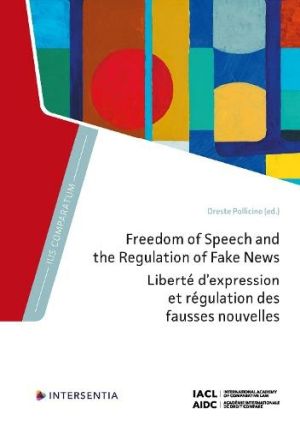
The spread of disinformation has raised global concerns, posing many challenges to democratic orders. On this matter, public and private actors around the world have provided different answers to address this challenge. From the launch of guidelines to the criminalisation of false content, these approaches underline the tension between protecting free speech and limiting the spread of disinformation. This book provides a comparative constitutional analysis of the relationship between freedom of speech and disinformation. By examining reports which focus on Belgium, Canada, Croatia, the European Union, Finland, France, Germany, Hungary, Italy, Japan, Macau, Romania, Turkey, the United Kingdom, the United States of America and Vietnam, this book analyses the constitutional challenges of balancing freedom of speech and falsehood, and the approaches adopted to deal with the spread of disinformation.